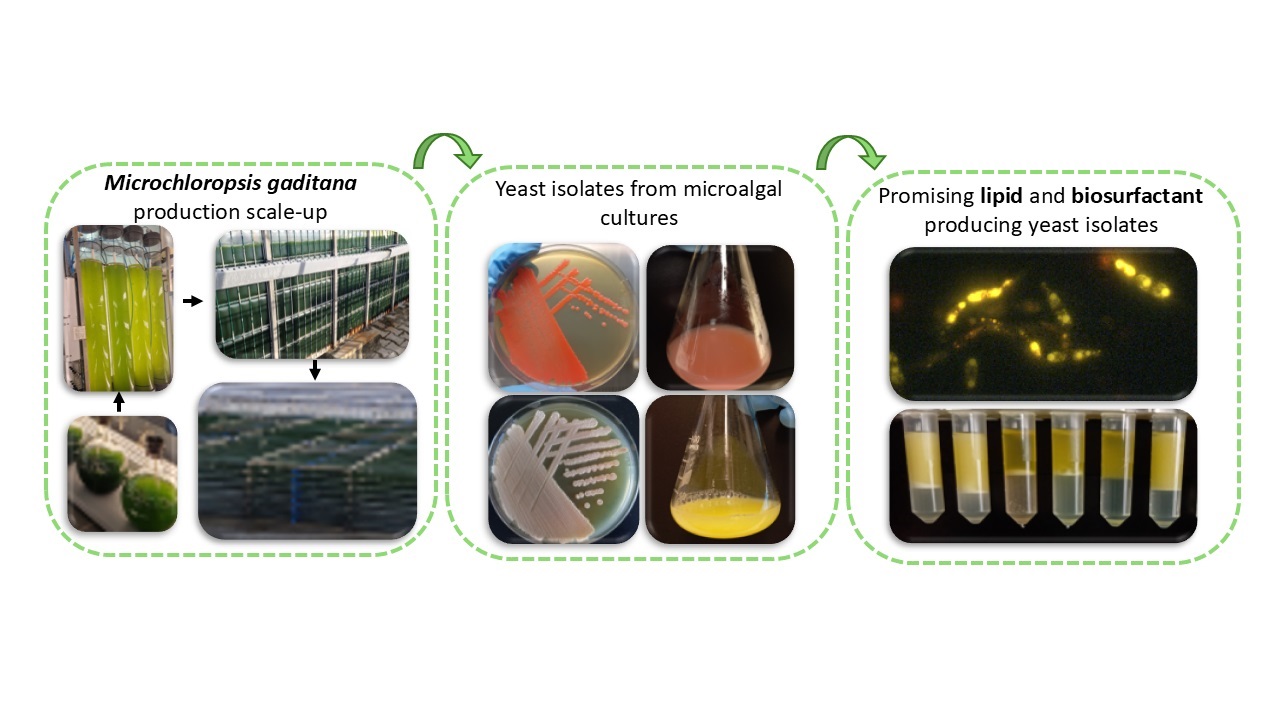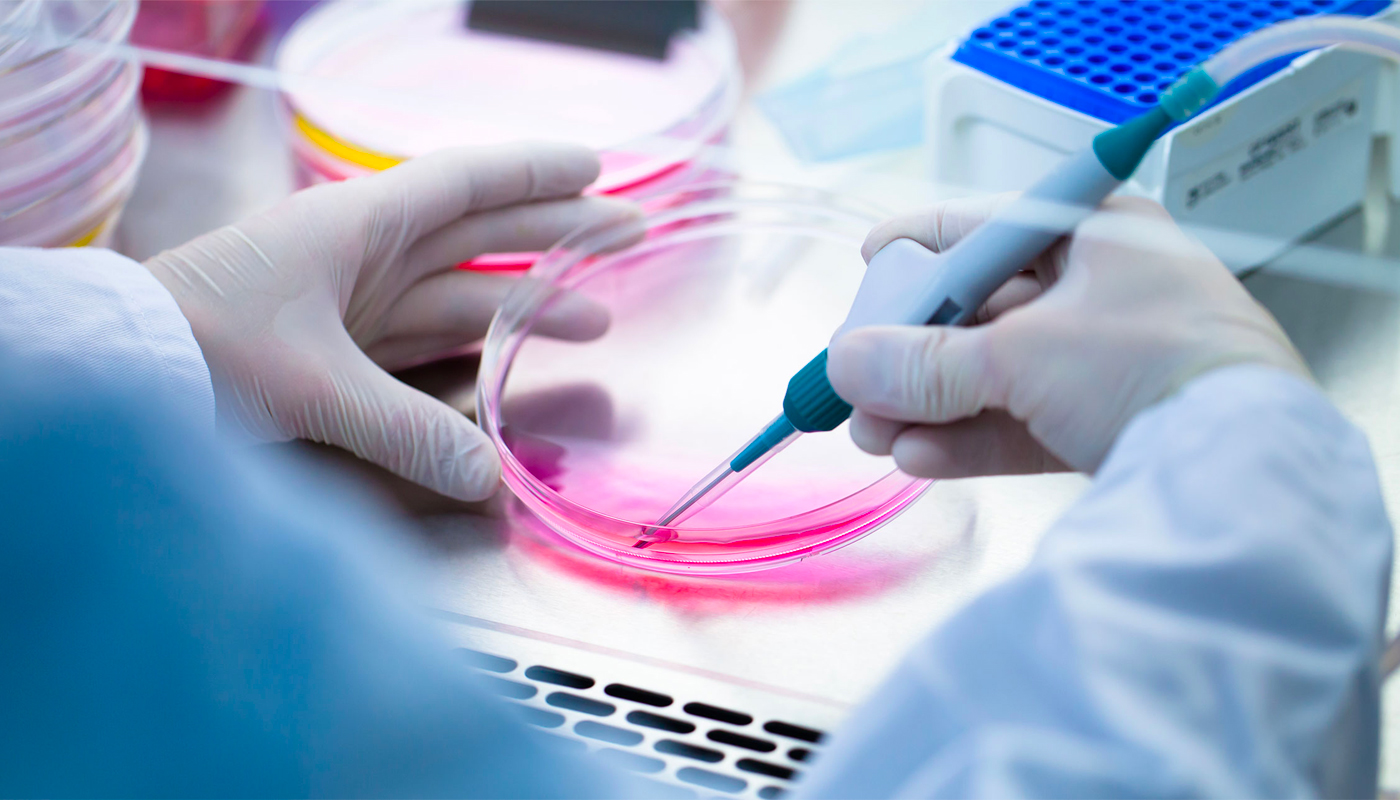Culturable Yeast Diversity Associated with Industrial Cultures of the Microalga Microchloropsis gaditana and Their Ability to Produce Lipids and Biosurfactants

A new study from iBB-Institute for Bioengineering and Biosciences and Department of Bioengineering, Instituto Superior Técnico was published today in the Journal of Fungi. This research work was carried out within the scope of “Pacto da Bioeconomia azul” (WP5 Algae Vertical and WP9 Portuguese Blue BioBank) and was funded by Next Generation EU European Fund and the Portuguese Recovery and Resilience Plan (PRR). This work was performed in close collaboration with Necton S. A. to uncover culturable yeast diversity associated with the industrial cultivation of the oleaginous microalgae Microchloropsis gaditana, produced at Necton S. A. facilities (Olhão, Portugal).M. gaditana is utilized as feed in aquaculture and considered one of the most promising microalgae species for industrial co-production of high-value products.
The article reports the characterization of the culturable yeast population present during the scale-up process of M. gaditana cultivation at Necton S.A. facilities, from 5 L flasks until 27,000 L Tubular Photobioreactors. The culture was followed during three months to isolate and molecularly identify the associated yeast population. The 146 isolates obtained belong to the species Rhodotorula diobovata, R. mucilaginosa, R. taiwanensis, R. sphaerocarpa, Vishniacozyma carnescens, Moesziomyces aphidis, and Meyerozyma guilliermondii. A systematic screening of their capacity to accumulate lipids and produce biosurfactants was also performed. Results indicate that these isolates are promising for yeast biotechnological applications and the study microalgae–yeasts interactions
The work, led by Prof. Isabel Sá-Correia at the iBB-Biological Sciences Research Group (BSRG), has as the two first authors Madalena Matos and Mónica Fernandes. This interinstitutional study also involved Ines Costa and Natacha Coelho from Necton, and Tamára Santos, Veronica Rossetto and João Varela from CCMAR, University of Algarve. See more.
